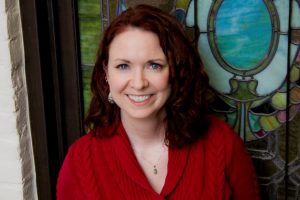Dr. Rachel Durham – Alumna Spotlight
 Associate Professor of Education, Notre Dame of Maryland University
Associate Professor of Education, Notre Dame of Maryland University
BA in Sociology, minor in History (1995)
LinkedIn
Dr. Rachel E. Durham is an Associate Professor in the School of Education at Notre Dame of Maryland University. She previously served as a faculty member at Johns Hopkins University and a researcher with the Baltimore Education Research Consortium (BERC) from 2007 to 2011 and 2013 to 2020. From 2011 to 2013, Dr. Durham was a member of the Education Project Team at the Wittgenstein Centre for Demography and Global Human Capital housed at the Vienna University of Economics and Business in Vienna, Austria. Dr. Durham’s areas of expertise include the transition to postsecondary, full service community schools, immigration and education, and research-practice partnerships.
Why and when did you decide to major in sociology?
I chose sociology my sophomore year after realizing that studying social phenomena could be a science. I had a vague ambition of becoming a scientist, but until I took SOC 101, I hadn’t realized one could be a social scientist. Growing up in Mississippi, I witnessed racism, sexism, religious fervor, religious ‘other-ing’ and poverty on a daily basis, and I was excited when I learned that these issues could be studied systematically. Having been raised Christian meant that social justice was just part of my DNA, so I wanted to really understand the reasons behind all these social problems so I could, — maybe in some small way — be part of the solution.
Please tell us some significant accomplishments/favorite memories from your time at UM.
What I remember most fondly is marching in the Pride of the South band and working at WUMS, Rebel Radio! I also minored in history, and I loved those classes. Learning the history of the old South was a perfect complement to studying systemic racism.
How would you summarize your educational/career path since UM?
When I graduated, I knew I would eventually go to graduate school, but I wasn’t yet sure for what purpose. So I worked in a community college admissions office for a while before entering a master’s program, where I was lucky enough to find a mentor who helped me realize I was most interested in education. The skills I gained in that program prepared me to launch a career in research, which is where I really found myself. A few years later, I completed a sociology and demography PhD program at Penn State. After I finished, I held a position as a full-time researcher at an education research and development center at Johns Hopkins University for 11 years, and now I’m an associate professor who teaches graduate students how to conduct rigorous education research themselves.
What is the value of studying sociology in today’s world?
Sociology is a very broad discipline with many ways to specialize. As an undergrad, I studied the sociology of families, religion, race, death, media, crime and demography. And there are many other sociological topics, like education, health, gender, sexuality, organizations, culture, to name a few. A degree in sociology can prepare you for good jobs in a lot of sectors, as well as law school or graduate studies. But, I think the perspective gained by looking at aspects of our lives that we usually take for granted in a more critical way is the real benefit that’s impossible to put a price on. Studying sociology made me a smarter consumer, a more informed voter and citizen, and a more thoughtful, sympathetic person.
